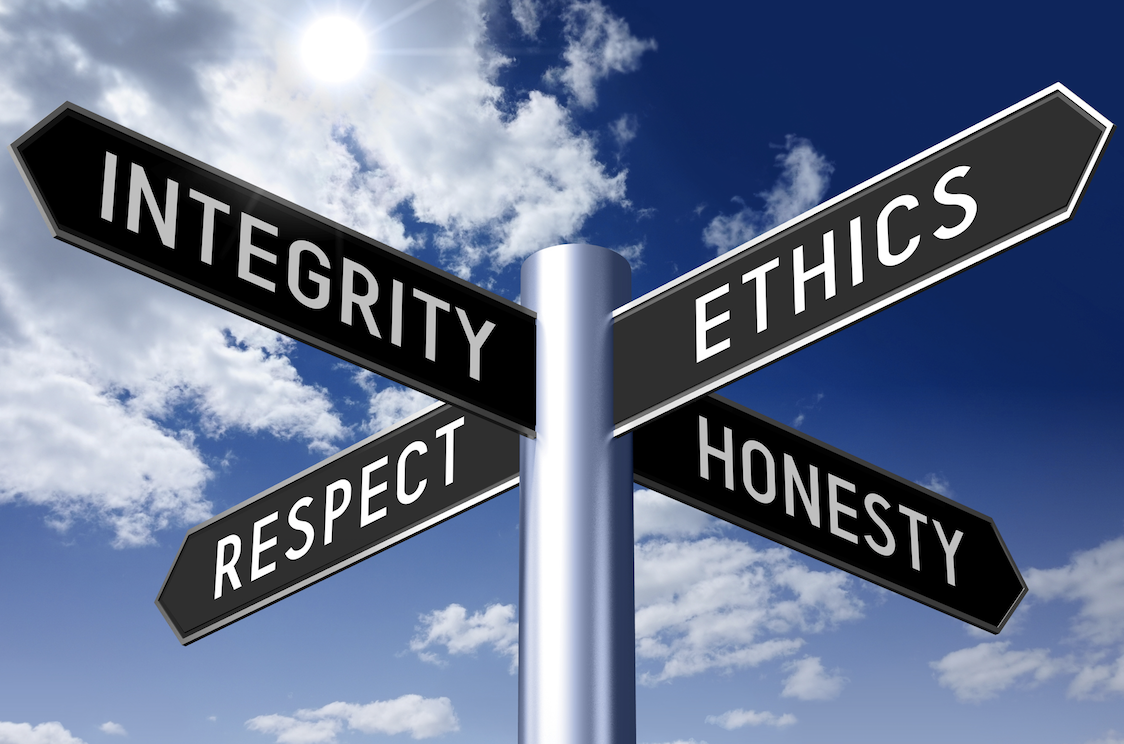 In my latest series of related blogs, “Are You Heading for an Ethical Fall?” five topic areas were covered:
In my latest series of related blogs, “Are You Heading for an Ethical Fall?” five topic areas were covered:
- “The Pressure to Continue” An examination of perpetuating unethical practices in order to stay ahead of the competition by any means possible,
- “Who’s Minding the Store?” Discussing how remote offices and remotely placed executives can start operating independently when ethics are not reinforced,
- “Not My Job” A look at how segmentation and “clever job titles” confuse ethical issues because no one claims responsibility for right action,
- “Get Me Good Results Now!” How many organizations are more than willing to resort to unethical actions rather than to do the ethical work required to legitimately grow the company,
- “Aren’t We the Clever Ones?” A look at how buzzwords and insider language are often used as cover up phrases for unethical activities such as illegal bribes and bonuses.
Short-term, I make the point that while on a short-term basis any one of these behaviors could lead to an increase in sales or raising any number of key measurements, in the long run they will lead the organization into troubled waters; it is just a matter of time. Whether bribes, sales pressures, lack of responsibility or artificially pushing for good results while doing bad things to get there, the results will always wind the organization up in a bad place.
Fines, negative publicity and even jail sentences have come about as the result of these unethical behaviors. It may take years for the organization to recover, and in some cases, they can force an organization out of business.
Ethical Fall – Combinations of Behaviors
Of course, the five areas I wrote about in the series are never truly isolated. There is often a very distinct blurring that is not only prevalent in most organizational scandals, it is strangely encouraged. For example, executives (even key executives) who allow themselves to create off-beat job titles and to segment their responsibilities, disavow situations where they are directly responsible for bribery or forcing unethical behaviors on their own employees.
Combinations of unethical behaviors lead to an unethical culture. Recent examples of companies such as Volkswagen Motors, Wells Fargo Bank Corporation or pharmaceutical companies such as Mylan (the epi-pen), were all created by pressures, unethical behaviors and seemingly no one in the organizations taking on the important role of assuming right actions.
Compounding the negative effects of unethical behaviors is that many larger organizations are publicly traded. It is not just a matter of an organization and its customers but thousands, hundreds of thousands of customers all being affected when stock prices plummet as the result of fines and SEC investigations. While the blame for the fall in stock price might be ascribed to an investigation, the true culprit in the absence of ethical oversight.
What puzzles me and troubles me greatly, is the lack of an ethical examination into the workings of many companies. Even within huge conglomerates, the military, major trade associations, sports organizations, and nonprofit healthcare facilities and research centers is an astounding lack of commitment to ethical matters.
Though it may admittedly sound self-serving, I cannot fathom why there isn’t more of an effort paid to ethical training and a reinforcement of the ethical training across all organizational platforms. Again, this is so astonishing because organizations, no matter how clever they believe themselves to be, are invariably caught. “Catching” an organization, due to the pursuit of law enforcement or the SEC is not just a wrist slap but involves severe financial and industry-wide ramifications.
I have often asked myself if a lack of ethical responsibility is possibly due to an organizational “laziness.” It’s quite possible. Then again, there may be some thought given to the fact that spending money on ethics training may diminish profitability, even though it is a fraction of revenues.
My conclusion to all of this reflection is that a lack of ethical examination and action might be due to the simplest reason of all – fear. It is the classic image of the organization being so fearful of what it might find or even prevent, that it doesn’t want to be bothered to look at all.
Ostriches really don’t bury their heads in the sand. It’s a myth. Sadly, many executives of large organizations do. Ostriches know all too well, if they buried their heads they would suffocate. Executives don’t always realize that a lack of ethics will do the same things to their companies. Little by little, they will suffer, until it is too late.
Of course your thoughts are welcome!


